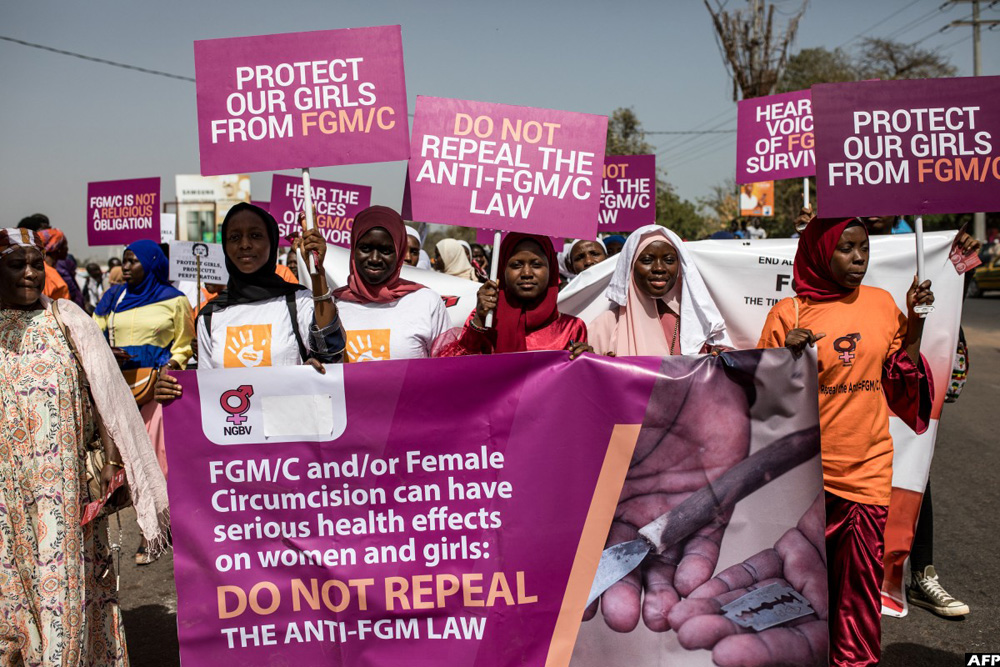HRW urges Gambia to uphold female genital mutilation ban
Apr 19, 2024
If the parliament adopts the Women's (Amendment) Bill in June, The Gambia would be first country in the world to overturn an FGM ban, Human Rights Watch (HRW) said.

Anti-FGM protesters hold placards outside the National Assembly in Banjul, the Gambia on March 18, 2024, during a debate between lawmakers on a highly controversial bill seeking to lift the ban on FGM. (AFP)
AFP .
@New Vision
DAKAR - Human Rights Watch on Friday urged legislators in The Gambia to reject a bill aimed at reversing a ban on female genital mutilation (FGM), describing it as "deeply troubling" for women's rights.
FGM has been outlawed in the West African nation since 2015, but lawmakers in March voted to advance a highly controversial bill seeking to lift the ban, sending it for committee consideration before a final vote.
If the parliament adopts the Women's (Amendment) Bill in June, The Gambia would be first country in the world to overturn an FGM ban, Human Rights Watch (HRW) said.
"The Gambian government's consideration of a bill reversing the ban on FGM is deeply troubling for women's rights," said Mausi Segun, Africa director at HRW.
"The proposed law would legitimise FGM in the country and could encourage similar measures elsewhere on the continent, undermining the progress made in protecting girls and women from this harmful practice," she added.
The UN children's agency UNICEF defines FGM as "all procedures involving the partial or total removal of the female external genitalia or other injury to the female genital organs for non-medical reasons".
It can lead to serious health problems, including infections, bleeding, infertility and complications in childbirth, and impairs sexual pleasure.
The Gambia is among the 10 countries with the highest levels of FGM, where 73 percent of women and girls aged between 15 and 49 have undergone the procedure, according to 2024 UNICEF figures.
A UN report from March said that over 230 million girls and women worldwide are survivors of the procedure.
"The Gambian government should fiercely protect the rights of Gambian girls and women and reject any proposal to reverse or weaken the 2015 FGM ban," Segun said.
In March, UN representatives warned that reversing the ban risked setting a "dangerous precedent" in the country.
"It sends a message that the rights and dignity of girls and women are expendable, perpetuating a cycle of discrimination and violence that has no place in a just and equitable society," The Gambia's UNICEF Representative, Nafisa Binte Shafique, and UNFPA Representative, Ndeye Rose Sarr, said in a joint statement.

No Comment